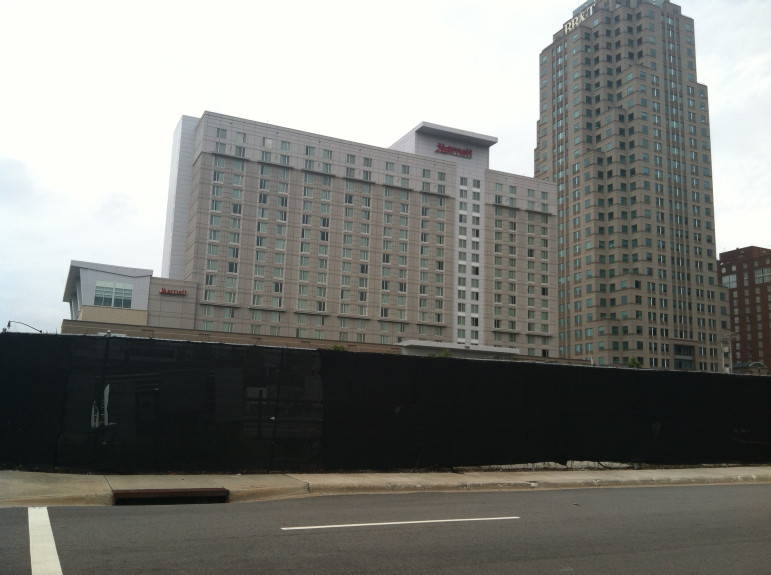The City of Raleigh will be shelling out a maximum of $20.2 million to buy back property in a failed deal with Charter Square developers.
City Councilors Tuesday unanimously approved the purchase without any discussion.
Interim City Manager Perry James said staff is auditing the developer’s reimbursement request and it is likely to be a few million less.
The purchase price includes the $5.2 million for the property, $5.5 million in construction costs already incurred by the developer and $9.5 million in miscellaneous development costs. James said the city sold the property for the same amount for which it is being purchased.
The city entered into a development agreement with Charter Square about six years ago with a stipulation that the project would be completed by Sept. 20, 2012. Hampered by the financial downturn, the developer asked for an additional year to begin construction.
Developers planned on building a mixed-use project that would include two towers, one for residential and one for office, with ground-floor retail in both. The development included construction of an underground parking deck, which has already been sold to the city. The rest of the Lenior Street lot between Wilmington and Fayetteville streets remains fenced off.
While the original project has been scrapped, there is still a project moving forward on the site.
James said the city hopes to recoup part of the costs when it sells part of the property to Dominion Realty Partners, which has taken over the project.
An 11-story building is planned for over the existing parking deck and will include retail and office space. The site plan was approved by the Raleigh Planning Commission in July.

Ariella Monti / Raleigh Public Record
The Charter Square lot sits between Fayetteville and Wilmington Streets along Lenior downtown. The Marriott hotel on Fayetteville is visible behind the empty space.
James said it is likely that Dominion will purchase the rest of the property in a couple of years. If Dominion opts not to purchase the property, James said it will be marketed to another developer.
Asked if the city often enters into similar deals with developers, James said, “I wouldn’t say often, but it does happen.”
“Usually the conditions don’t end up playing out. You’ve lined up this developer because you’re confident that they have a deal that’s ready to go and it’s for what’s a good public purpose,” he said, adding that the economy can stop everything.
The city can sell property in a deal such as Charter Square, or it can go a more commercial route. James said that the upside to a deal like Charter Square is that the city can specify what it wants to see on that property. If the city feels that a hotel is the best use for the space, it can require the developer build a hotel.
By listing the property for sale, the city loses that control and oversight.